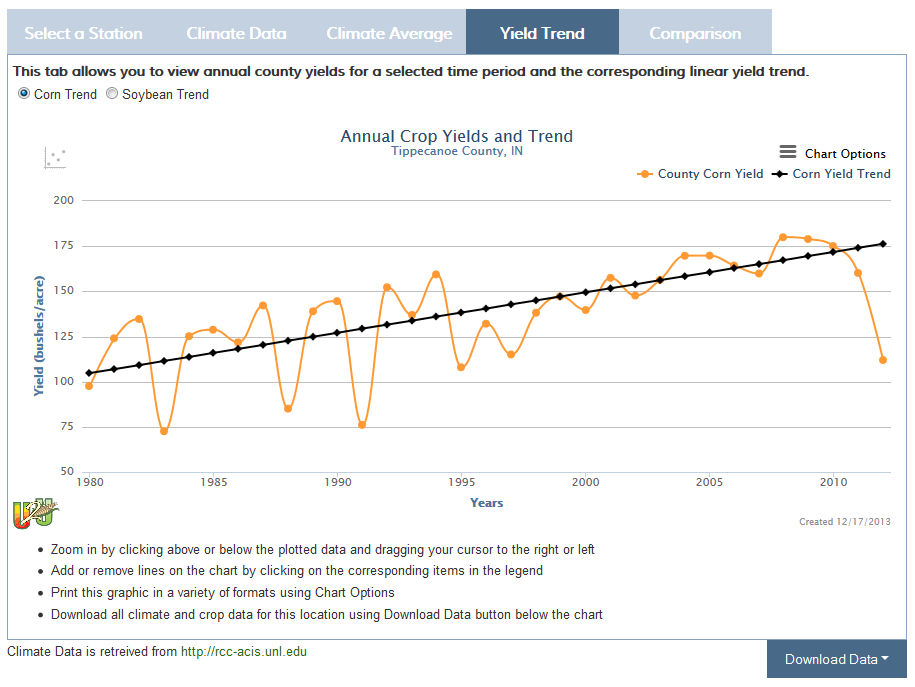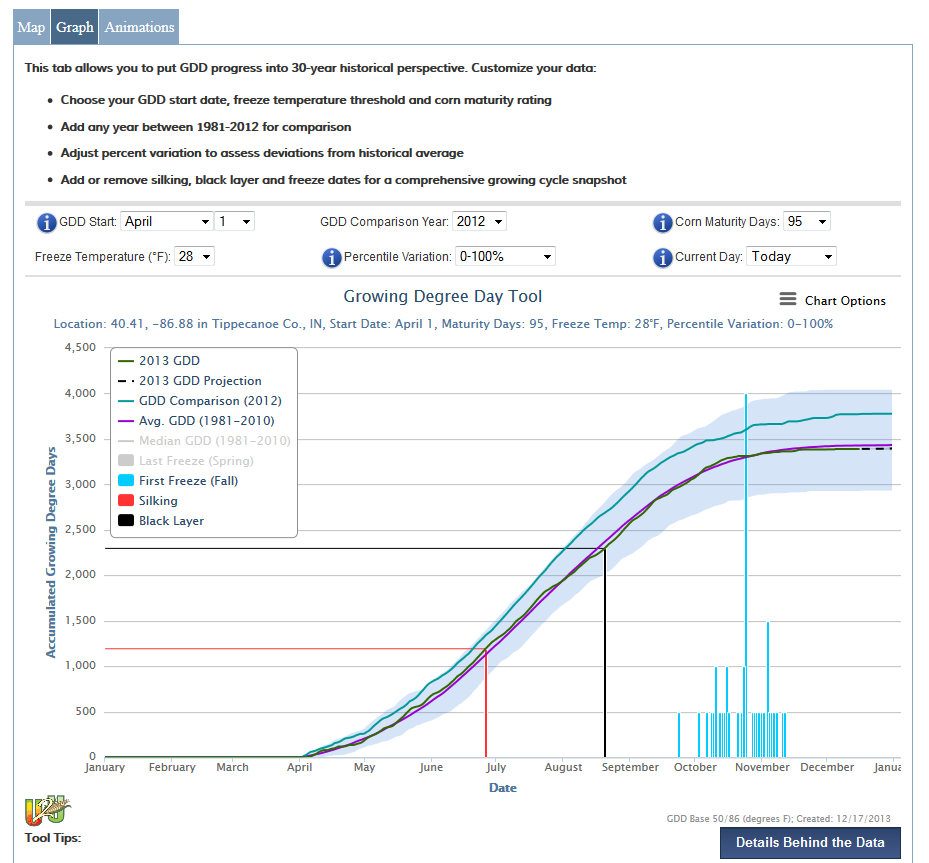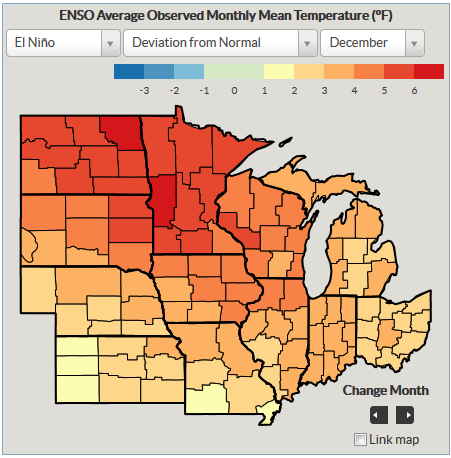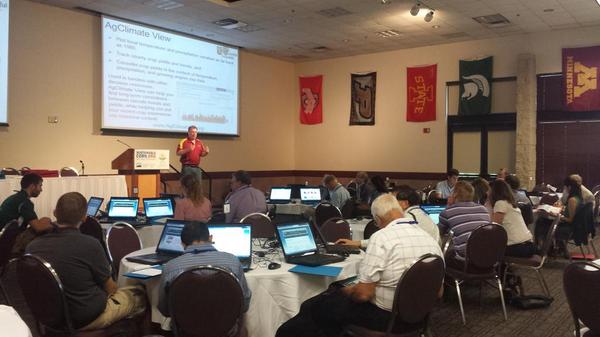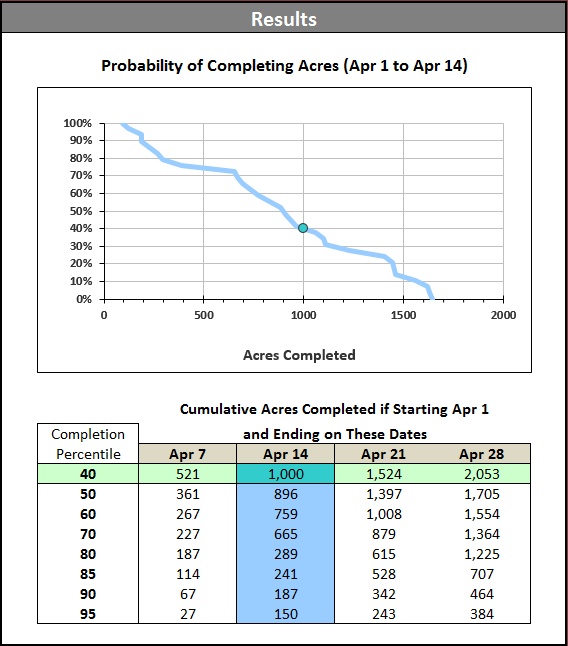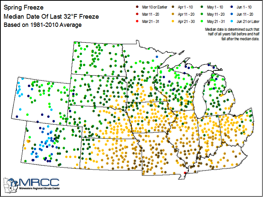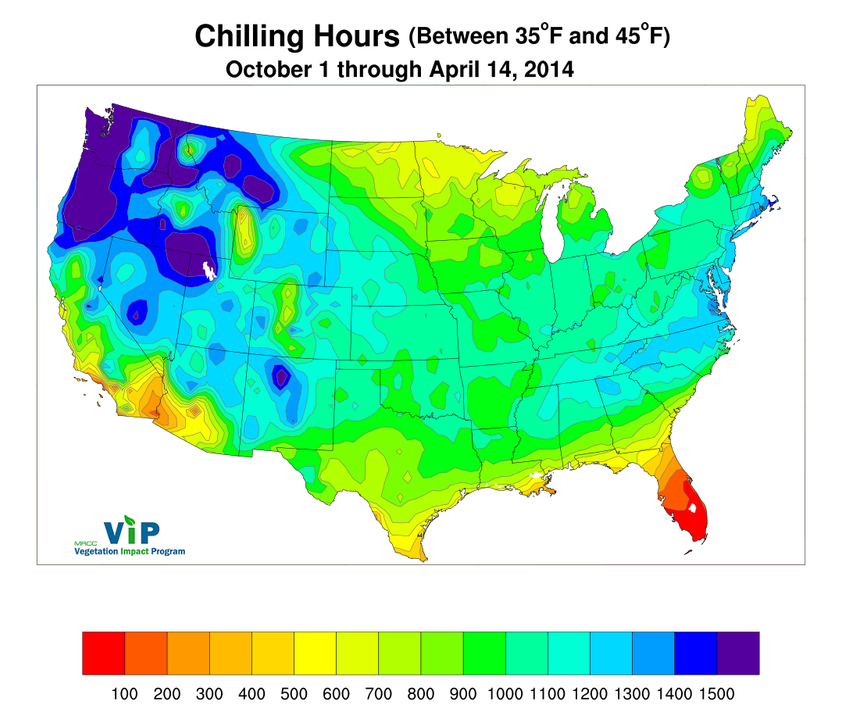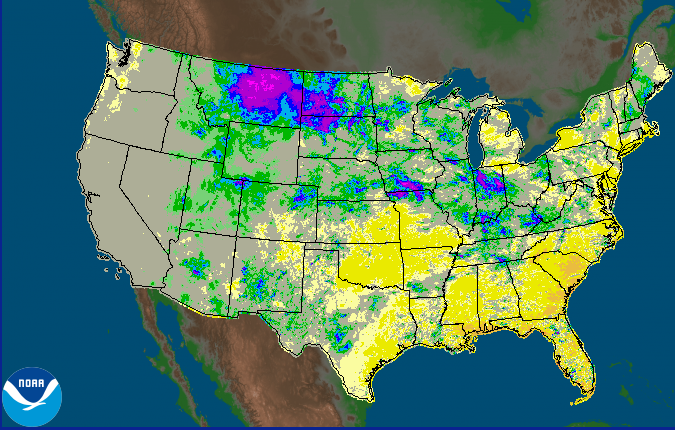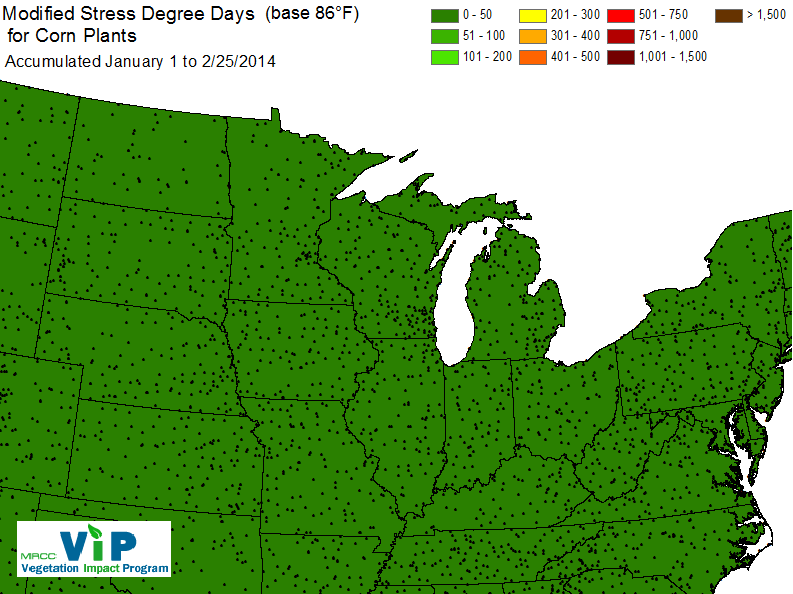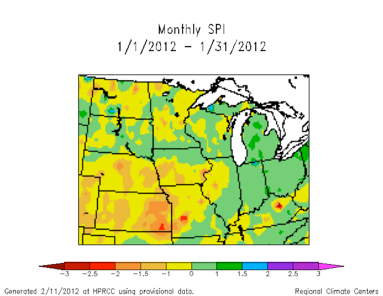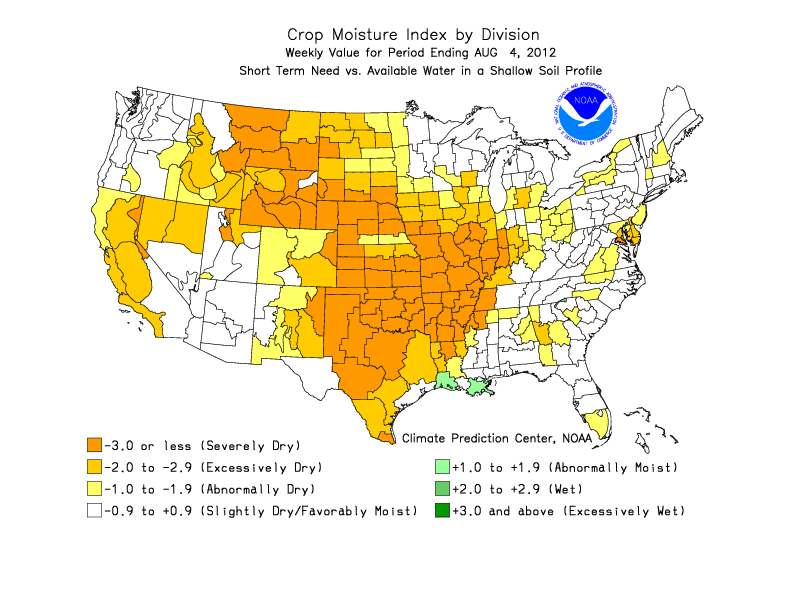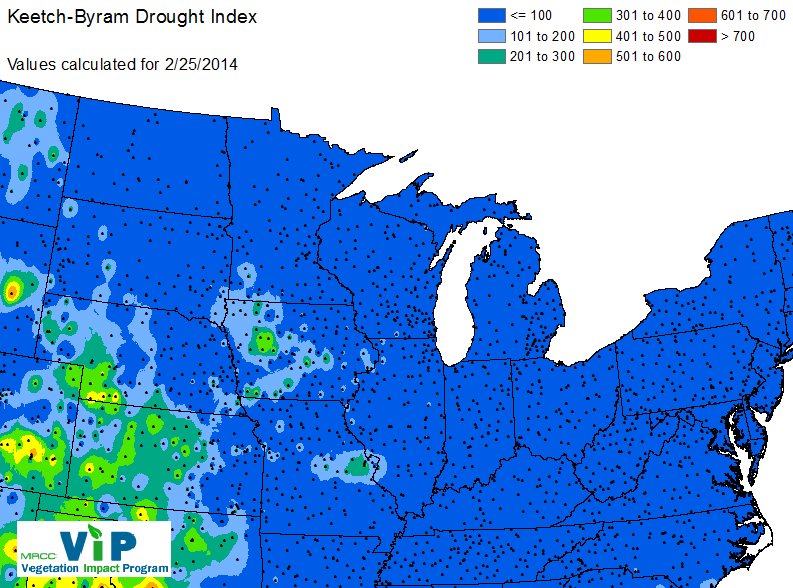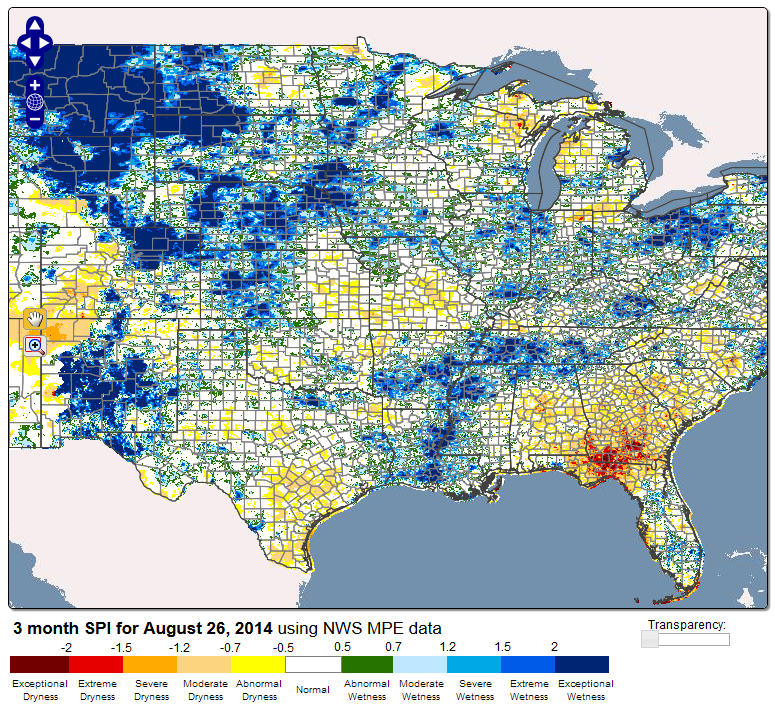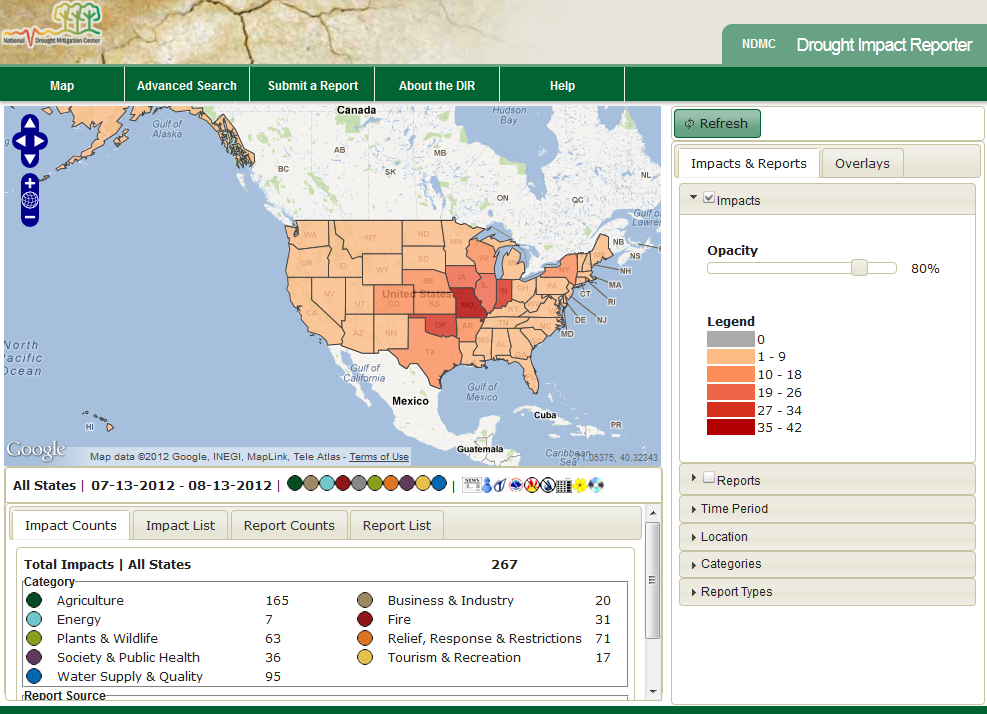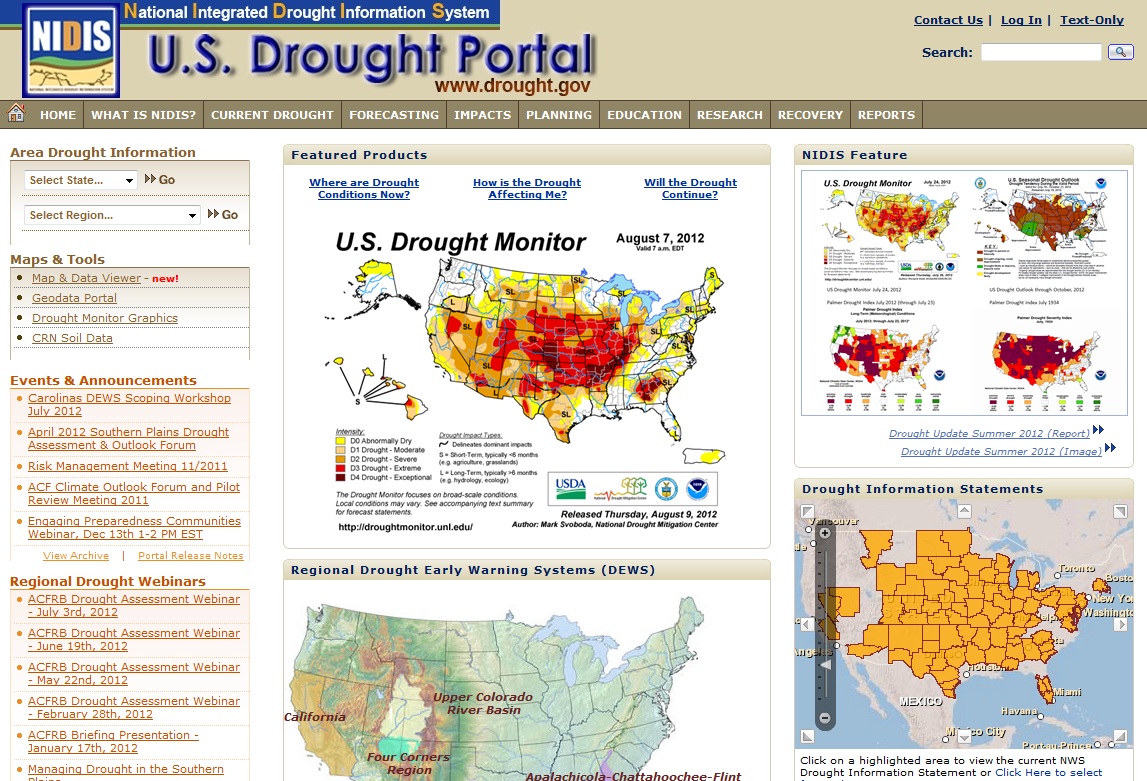Transforming Climate Variability and
Change Information for Cereal Crop Producers
Decision Dashboard
U2UDST Suite
AgClimate ViewDST
A convenient way to access customized historical climate and crop yield data for the U.S. Corn Belt. View graphs of monthly temperature and precipitation, plot corn and soybean yield trends, and compare climate and yields over the past 30 years.
Corn GDDDST
Track real-time and historical GDD accumulations, assess spring and fall frost risk, and guide decisions related to planting, harvest, and seed selection. This innovative tool integrates corn development stages with weather and climate data for location-specific decision support tailored specifically to agricultural production.
Climate Patterns ViewerDST
Discover how global climate patterns like the El Niño Southern Oscillation (ENSO) and Arctic Oscillation (AO) have historically affected local climate conditions and crop yields across the U.S. Corn Belt.
Corn Split NDST
Determine the feasibility and profitability of using post-planting nitrogen application for corn production. This product combines historical data on crop growth and fieldwork conditions with economic considerations to determine best/worst/average scenarios of successfully completing nitrogen applications within a user-specified time period. Now available for 12 states in the north central US.
Irrigation InvestmentDST
The U2U Irrigation Investment DST lets you explore the potential profitability of installing irrigation equipment at user-selected locations across the Corn Belt. Discover how many years from 1980-2005 irrigation would have been profitable, calculate the net present value of investment, and compare dryland and irrigated corn and soybean yields under different rainfall conditions.
U2U Educational Resources
The U2U Educational Resources page includes everything you need to quickly learn about and disseminate U2U decision support tools.
Probable Fieldwork DaysDST
This spreadsheet-based tool uses USDA data on Days Suitable for Fieldwork to determine the probability of completing in-field activities during a user-specified time period. This product is currently available for Illinois, Iowa, Kansas, and Missouri. (Hosted by the University of Missouri)
Other Decision Support Resources
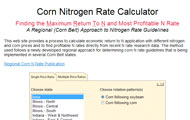
Corn Nitrogen Rate Calculator
(Selected Corn Belt States)
Hosted by Iowa State University, and based on the latest nitrogen (N) rate research data in the Corn Belt, this tool helps farmers determine profitable N rates based on user-defined location, rotation patters, and corn and N prices.
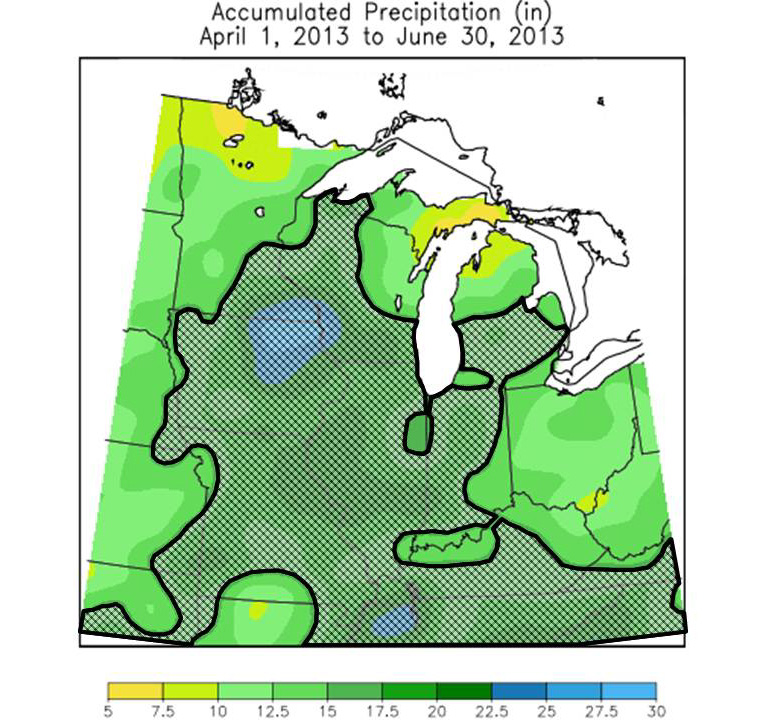
Nitrogen Watch
(Midwest)
This tool from the University of Missouri tracks rainfall and identifies 'danger areas' that are on track to have widespread problems with N loss and deficiency in corn. Maps are updated from about late April thru early July, and archives go back to 2009.
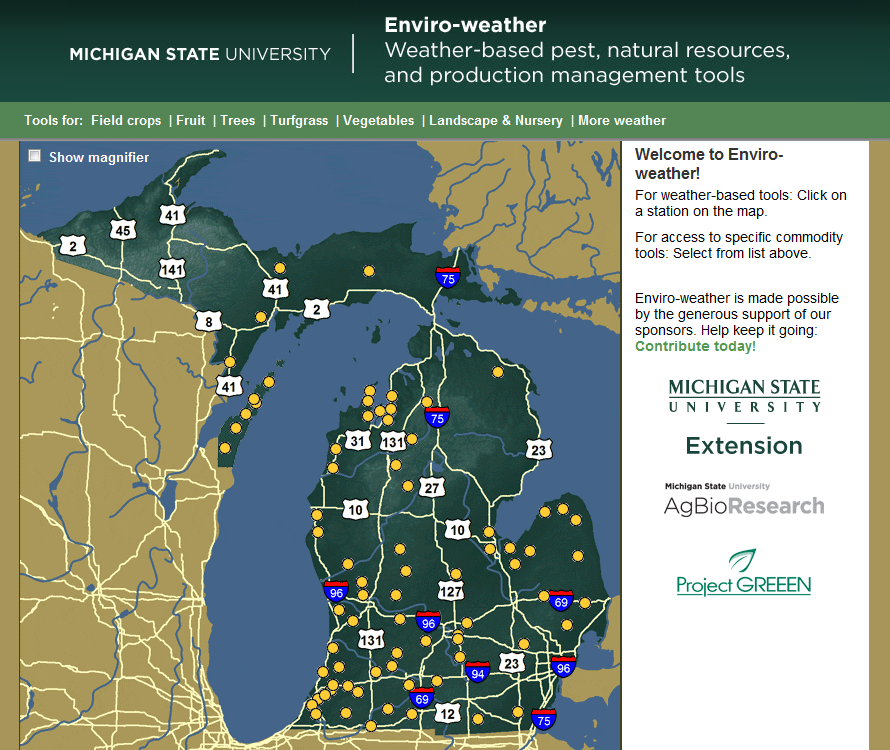
Enviro-Weather
(Michigan)
Michigan State University's weather-based decision-making resource for pest, production and resource managers.
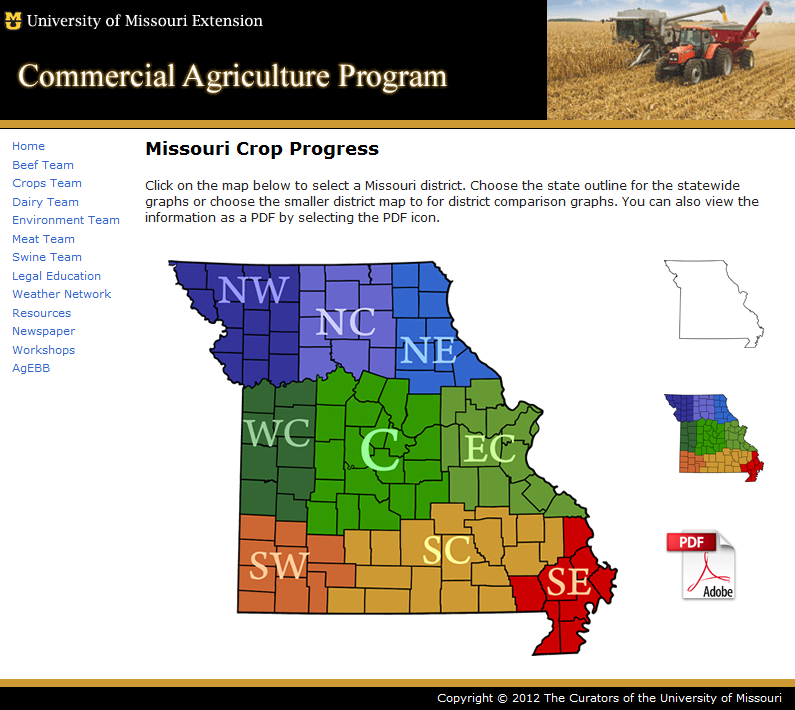
Missouri Crop Progress Maps
(Missouri)
This tool from the University of Missouri Commercial Agriculture Extension Program provides state and district level crop progress data from 1977-2010 along with average frost/freeze information. Grouped by decade, these summarized graphs show the average timing of planting, silking, and harvest for corn, soybean, and wheat crops.
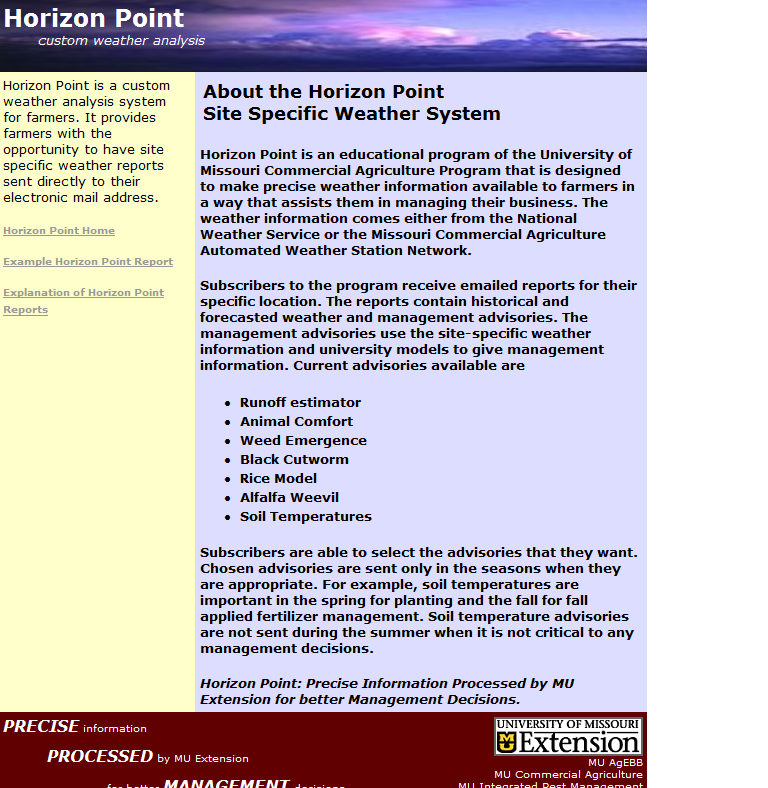
Horizon Point
(Missouri)
University of Missouri Commercial Agriculture Extension Program, in partnership with the Missouri Climate Office, provides precise weather information and advisories to help farmers with managing their business. Reports contain rainfall runoff estimator, weed/insect scouting aids, nitrogen application chart, planting depth soil temperature, and more.
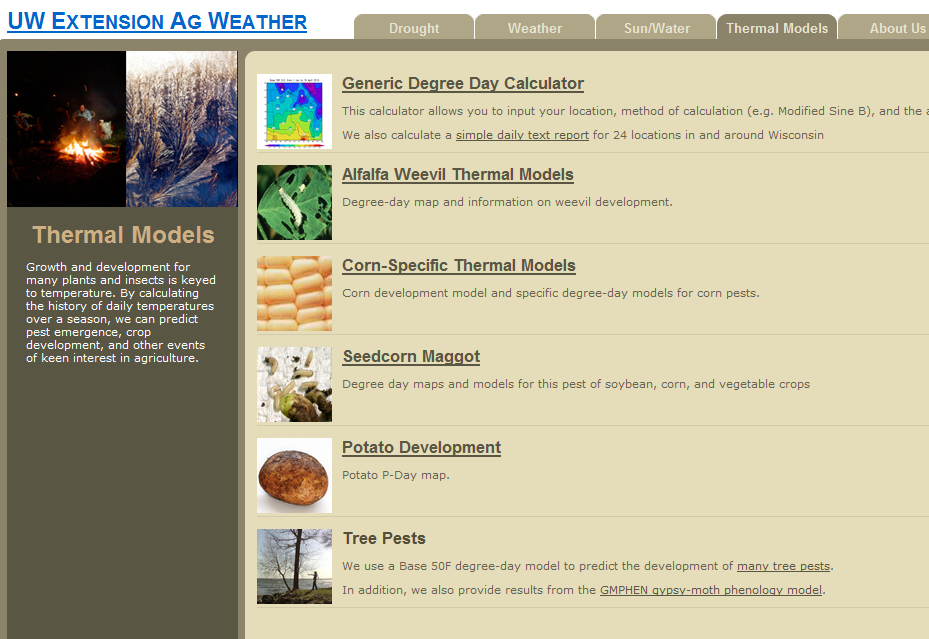
Thermal Models
(Wisconsin and Minnesota)
The University of Wisconsin Extension Ag Weather provides several temperature-based models that can be used to predict crop development and pest emergence. Models specific to corn development and corn pests are available.

Irrigation Scheduling & Crop Water Use
Irris Scheduler
(Indiana)
KanSched2
(Kansas)
Crop Water Use Calculator
(Missouri)
Soy Irrigation Tool
(Nebraska)
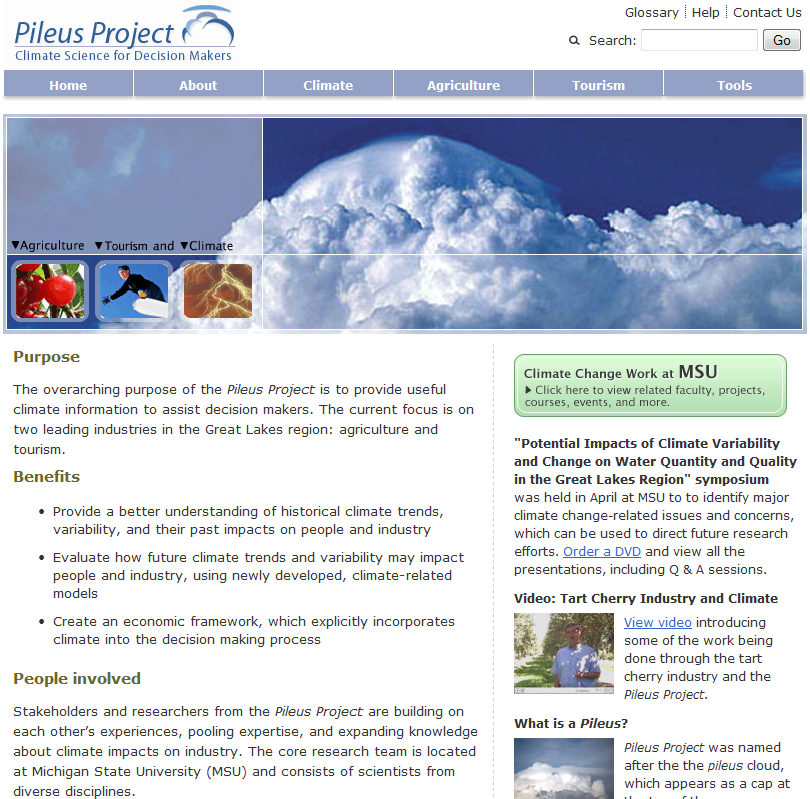
Pileus Project: Climate Science for Decision Makers
(Michigan)
Agriculture Tools
Focused on the tart cherry industry, these tools help growers assess how past and future climate trends affect tart cherry production.
Climate Tools
Access charts and graphs of historical weather data and learn about future climate scenarios with audio-visual learning modules
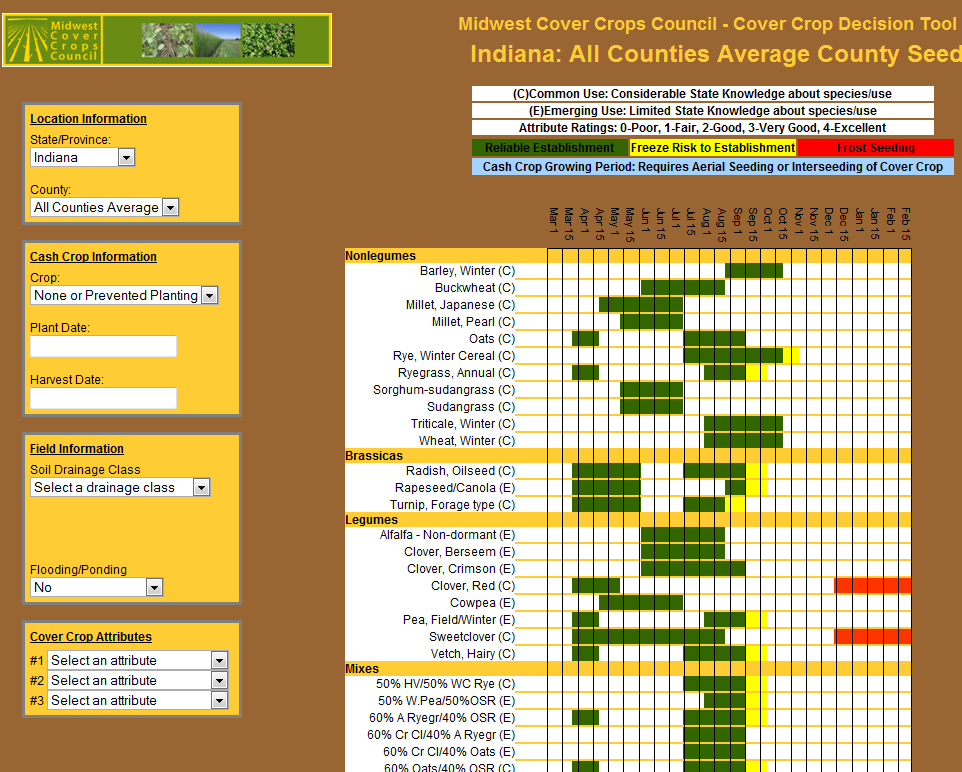
Cover Crop Decision Tool
(Selected Corn Belt States)
This tool from the Midwest Cover Crop Council assists farmers in selecting cover crops to include in row crop production. Cover crops help reduce soil erosion and increase nutrient recycling on farmlands, which in turn lowers soil and nutrient loads entering lakes and rivers.
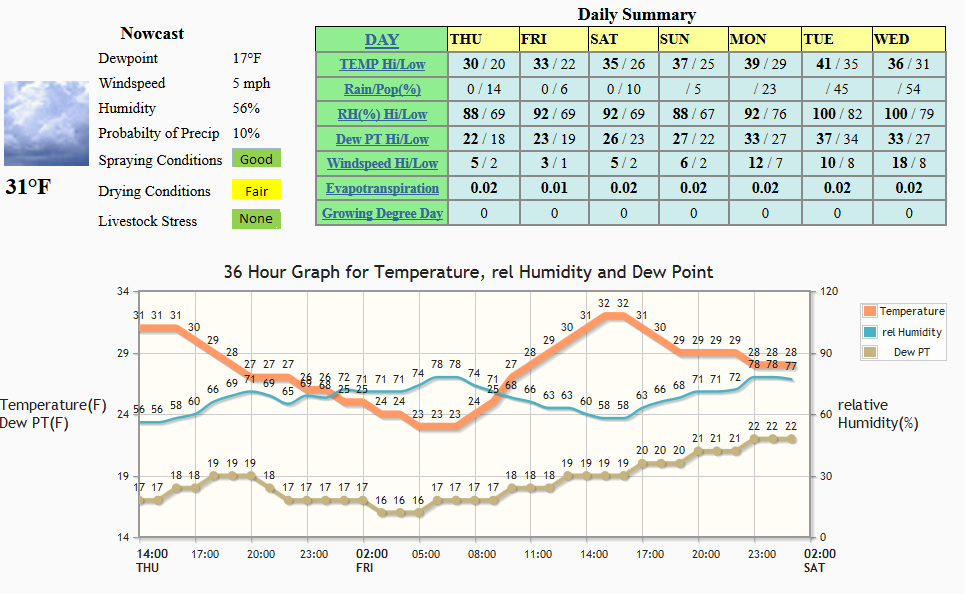
Univ Ky Ag Weather Outlook
(U.S.)
Select your location to access current weather conditions and a short-term agricultural forecast, including information about spraying conditions, drying conditions, and livestock stress.
AGRO-CLIMATE REPORTS
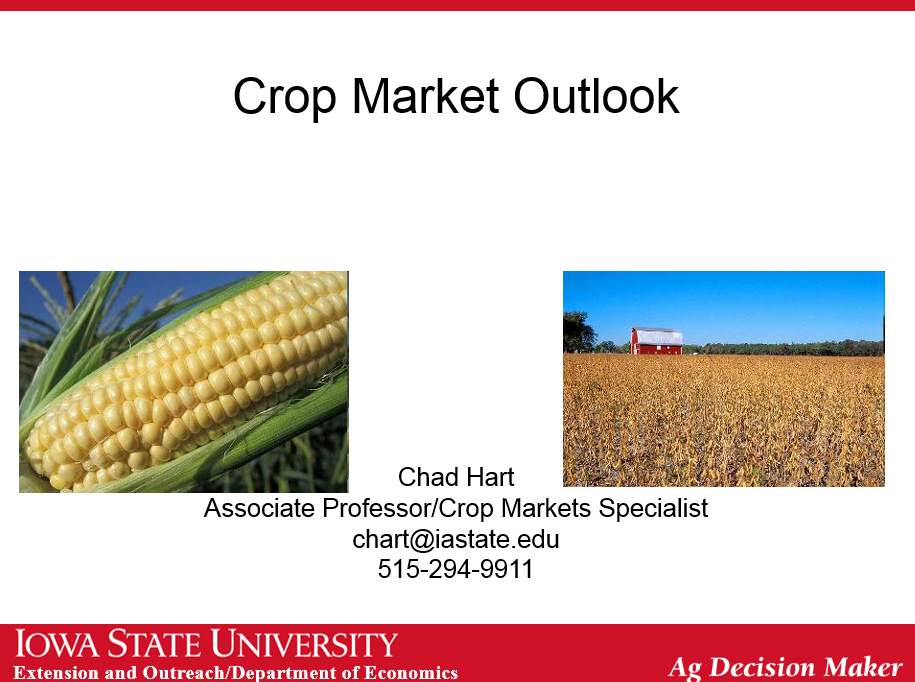
2017 Crop Market Outlook
PowerPoint
The 2016 Crop Market Outlook is authored by Chad Hart, Assistant professor/Grain Markets Specialist at Iowa State University. The outlook provides current corn and soybean supply/demand information from USDA, and highlights major factors influencing the feed, export, and ethanol markets. It also provides a snapshot of market prices and potential production concerns for the current growing season.

Weekly Weather & Crop Bulletin
The Weekly Weather and Crop Bulletin (WWCB) is jointly prepared by the U.S. Department of Commerce, National Oceanic and Atmospheric Administration, and the U.S. Department of Agriculture. It provides information on weather, climate and agricultural developments worldwide, along with detailed charts and tables of agro-meteorological information that are appropriate for the season.

USDA 2012 Ag Census Web Maps
Website
The U.S. Department of Agriculture (USDA) has launched a new mapping interface for easy access to key maps from the 2012 Ag Census. Use these maps to display information about crops planted/harvested, farm characteristics, economics, and more.
Climate Summaries and News
Some State and Regional Climate Offices provide narrative summaries of recent weather and climate conditions and events. These are typically updated on a monthly basis, although some offices provide more frequent updates.
USDA-NASS Weekly Crop Progress & Condition Reports
Weekly Crop Progress & Condition Reports includes information about degree days, temperature, precipitation, crop planting progress, crop development and harvesting progress. Reports are issued weekly (April – Nov) by USDA-NASS state offices.
University Extension Newsletters/Information
University Extension newsletters and websites provide practical advice and information about agricultural production, pest management, marketing, and more.
Weather/climate condition maps
Drought Information

